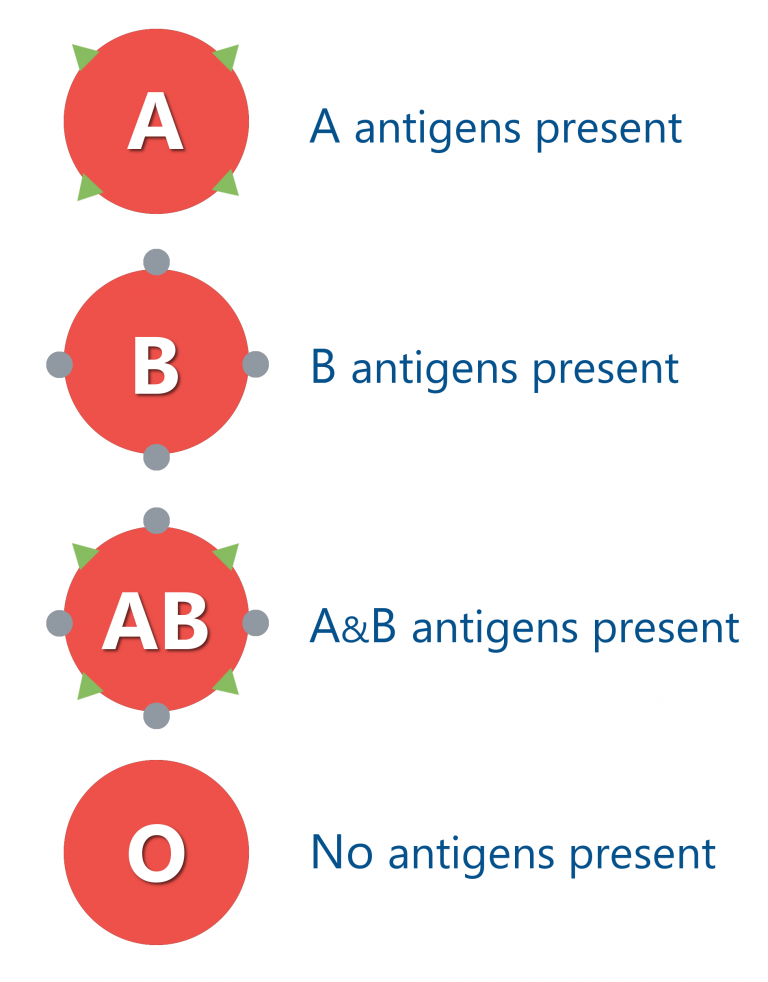When people hear about the possibility of their blood group changing, it often sparks curiosity and concern. Blood types are a fundamental aspect of our biology, often discussed in the context of transfusions, organ donations, and even in casual conversations. But is it possible for your blood group to change during your lifetime? Let’s explore the science behind blood types and the rare instances that could lead to changes.

The short answer is "No, your blood usually does not change". But there are certain special conditions where it will.
Understanding Blood groups
Your blood type is determined by specific antigens—proteins on the surface of your red blood cells. The most well-known blood group systems are the ABO and Rh systems. These systems classify your blood into one of four main groups—A, B, AB, or O—based on the presence or absence of A and B antigens. The Rh factor, another antigen, determines whether your blood type is positive (+) or negative (-).

Within the nucleus of our cells, we find chromosomes that house genes responsible for various traits, including our blood group. These genes are composed of DNA sequences that determine our specific blood groups. The inheritance of these DNA sequences governing blood groups occurs through the genetic material passed down from our parents.
Click here to read more about blood groups.
Click here to read more about blood group testing.

For example:
Type A: Has A antigens on the surface of the red blood cells.
Type B: Has B antigens.
Type AB: Has both A and B antigens.
Type O: Has neither A nor B antigens.
Rh Positive (+): Has the Rh antigen.
Rh Negative (-): Lacks the Rh antigen.
These blood groupings are determined by your genetics, specifically the genes you inherit from your parents, and they remain constant throughout your life—almost always.
Can Blood Group Really Change?
In general, your blood type remains the same from birth until death. However, there are rare scenarios where a change in blood group might occur:
Bone Marrow Transplantation:
If a person receives a bone marrow transplant from a donor with a different blood type, their blood group can change to that of the donor. This is because bone marrow is responsible for producing blood cells, including red blood cells. Over time, as the new bone marrow produces red blood cells with the donor’s antigens, the recipient’s blood type will align with that of the donor.

Severe Illness or Bone Marrow Disorders:
Certain diseases affecting the bone marrow, such as leukemia, can cause changes in blood cell production. In rare cases, this might lead to a change in the apparent blood type due to alterations in the expression of antigens. However, these changes are typically not permanent and can revert after treatment.
Blood Transfusion:
While blood transfusions do not change your underlying blood type, receiving a large volume of transfused blood (especially in cases of massive transfusion) might temporarily alter the proportions of different blood types in your circulation. However, this effect is temporary, and your blood type will return to its original state as your body replenishes its own red blood cells.
Chimerism:
A rare condition called chimerism occurs when an individual has two or more genetically distinct cell lines in their body. This can happen naturally, for example, if a person absorbs cells from a twin during early embryonic development. In such cases, the individual might have two different blood types. However, this is extremely rare and does not represent a change from one blood type to another but rather the coexistence of two types.
Errors
While rare, mistakes may arise in your laboratory reports as a result of human error or technical issues. The implementation of automation and digitalization has significantly reduced the occurrence of errors.
Why Is It Important to Know Your Blood Type?
Knowing your blood type is essential for various medical reasons. In emergencies requiring blood transfusions, having the wrong blood type could trigger an immune response, leading to serious complications. Additionally, for women, knowing their Rh status is crucial during pregnancy, as an Rh-negative mother carrying an Rh-positive baby might need special care to prevent complications.

Conclusion: Stability with Rare Exceptions
For most people, their blood type remains unchanged throughout their life, firmly rooted in their genetic makeup. However, in certain medical conditions or after specific medical treatments, blood group changes can occur—though these situations are rare. Understanding your blood type and how it interacts with your health is an important part of medical knowledge, providing clarity and peace of mind.
If you ever find yourself in a situation where your blood type appears to have changed, it’s essential to consult with a Transfusion Medicine specialist to understand the underlying cause and its implications for your health.


Comments